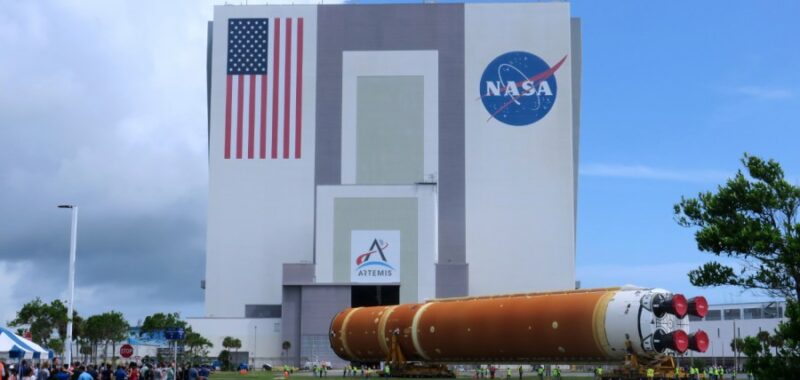
Space policy is not on the ballot for 2024. No matter who wins the presidential election, former President Donald Trump or Vice President Kamala Harris, we should not expect any abrupt changes in the direction of America’s space efforts, especially regarding the Artemis program.
Nevertheless, whoever gets sworn in on Jan. 20 is going to face some monumental challenges going forward.
Vice President Kamala Harris, who has suddenly been catapulted to the role of Democratic presidential nominee, has been the chair of the National Space Council throughout the Biden administration. While Harris has played less of a role in formulating space policy than Trump’s vice president, Mike Pence, Space News suggests that we should expect few changes in space policy should she win the presidency.
Politico adds that Harris is enthusiastic about the Artemis program to return to the moon.
If former President Donald Trump wins a second term, we can expect more of the same as well, but with perhaps a greater focus on space than that of the Biden administration. The space portion of the 2024 Republican Party platform suggests an emphasis on commercial space and space exploration in a second Trump term. It calls for “a robust manufacturing industry in near-Earth orbit,” sending U.S. astronauts “back to the Moon and onward to Mars” and more collaboration with commercial space companies to “revolutionize our ability to access, live in and develop assets in space.”
It should be noted that the paragraph is situated under a chapter about economic policy rather than science. It’s as clear and concise as any mission statement ever written.
Trump started the Artemis program during his first term and oversaw the full flowering of commercial space, including the Commercial Crew program, the Commercial Lunar Payload Services Program and Human Landing Systems. He would be expected to double down on space during his prospective second term.
Since personnel determines policy, the person each candidate would appoint as NASA administrator is of keen interest.
Jim Bridenstine, who served as NASA chief during Trump’s first administration, would have to be at the top of the list if the former president wins a second term, The man who so ably started the Artemis program could be perfect to see it through to at least the first moon landing,
Harris would have the option of keeping Bill Nelson on to run NASA. While in his 80s, the former senator does not seem to be slowing down.
On the other hand, should Harris want someone younger to run NASA, Sen. Mark Kelly, (D-Ariz.) would be a good fit.
Kelly’s status as a former astronaut is less important than the fact that he is a politician. Bridenstine, who was a congressman before he ran NASA, and Nelson, once a United States senator, prove that political experience is crucial for getting funding and other support for the space agency and its programs.
Whoever gets elected president and whoever is selected to run NASA has two major problems they will have to deal with concerning America’s civil space program.
One, the Commercial Crew program has yet to develop a competitive private human space sector. While the SpaceX Crew Dragon has been delivering humans to low Earth orbit regularly, the woes being experienced by the Boeing Starliner demonstrate that commercial crew consists of a monopoly, never a healthy situation in the long run. Somehow, another provider for crewed space transportation will have to be found.
Second, the Artemis program to return to the moon and go on to Mars is suffering from the same problems that other NASA programs such as the International Space Station and the James Webb Space Telescope have experienced. Artemis is taking longer and costing more than originally envisioned. The year of the next moon landing has slipped from 2024 to 2026 and is likely to slip further.
The next president and his or her NASA administrator will have to identify the problems that are slowing Artemis down and rectify them. Otherwise, the next moonwalker may be Chinese, with all of the unpleasant and embarrassing effects on America’s standing in the world that implies.
Which potential president is better suited by experience and competence to address these issues is a question that any voter to whom a space future is important will have to decide.
Mark R. Whittington is the author of “Why is It So Hard to Go Back to the Moon?” “ The Moon, Mars and Beyond,” and, most recently, “Why is America Going Back to the Moon?” He blogs at Curmudgeons Corner.

